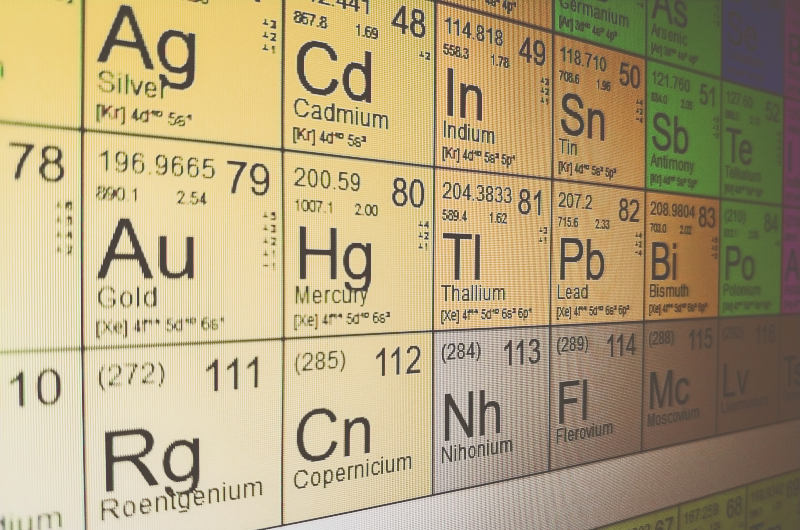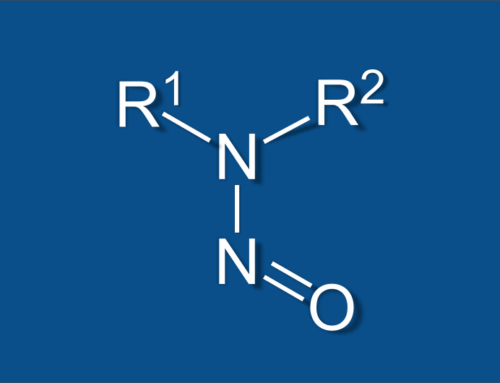Elemental impurities (or heavy metals if you will) can be toxic for humans when they are not metabolized by the body and accumulate in the soft tissues. Depending on the elemental impurities in question, toxicity can occur at levels just above naturally occurring background levels. This means that consumption of pharmaceuticals and food supplements with high heavy metal concentrations can cause acute or chronic poisoning. Poisoning can result in damage to the central nervous system as well as damage to blood, lungs, kidneys, liver, and other vital organs. Long-term exposure to these elemental impurities may result in degeneration of the major organ systems of the body, as well as cancer. The four heavy metals of primary concern as identified by the United States Pharmacopeia (USP) are mercury, arsenic, cadmium and lead.
A Brief History
Previously, the standard test for identifying heavy metals in a material defined in USP <231> is a simple test where a positive result would produce insoluble metal sulfides. This colorimetric test was first introduced over 100 years ago, this test is simple and cheap, but qualitative. It cannot distinguish between heavy metals, and the limits of the test are specified by the observation of a precipitate, as opposed to analysis of toxicological data. This means that not only will it be unclear as to which heavy metal is contaminating a sample, but a compound that passes the colorimetric test may still contain harmful quantities of heavy metals. Furthermore, color reactions may occur due to interference from the solution the sample is dissolved in, leading to false positives.
The Current Standard
Queue the next generation of heavy metals testing as specified by USP <232> and USP <233>. One of the methods is to use Inductively Coupled Plasma Mass Spectrometry (ICP-MS).
In contrast to the simple colorimetric test, the Elemental Impurities test using an ICP-MS is performed first by placing the sample in solution. The solutions is then heated by thousands of degrees, to the point that it is reduced to charged ions (plasma). This plasma is then run through a mass spectrometer, which separates the ions of the various elements based on both mass and charge. Based on the readout from the mass spectrometer, individual elements can be both identified and quantified, with very little chance of interference.
An ICP-MS will yield quick results at an incredible level of sensitivity. One brief 2 minute scan can identify 60 different elements in solution and the detection limits are at a level of nanograms per milliliter. Because of this increased sensitivity, samples placed in the ICP-MS can be extremely dilute. This also has the effect of reducing the concentration of potential interfering compounds. This not only leads to a more accurate result in terms of identifying which heavy metals are in solution, but also determines their exact quantities. These quantities can then be compared to the determined daily limits of heavy metal intake, normally found in the microgram per day range.
The Logistics of Testing for Elemental Impurities
ICP-MS testing can be performed on either finished products or the raw materials that make-up the finished product. Both strategies offer advantages and disadvantages. If you limit yourself to only testing for elemental impurities in finished products, fewer tests will need to be performed. That said, if samples are found to contain unacceptable concentrations of heavy metals, then the entire GMP production run will need to be scrapped. By contrast, when testing raw materials, each raw material will have to be tested individually as opposed to the single finished product. However, if unacceptably high concentrations of heavy metals are found in one of the raw materials, the source of the raw material can be changed relatively easily, thus avoiding the discarding of an entire production run and reducing costs in the long run.
How Nucro-Technics Can Help You
Nucro-Technics routinely runs heavy metals testing per USP <232> and USP <233>. We have multiple microwave digestion systems for the processing of the samples, as well as multiple ICP-Mass Specs to conduct the actual analyses. Learn more about Nucro-Technics’ complete range of Analytical Chemistry GMP and GLP testing services.




